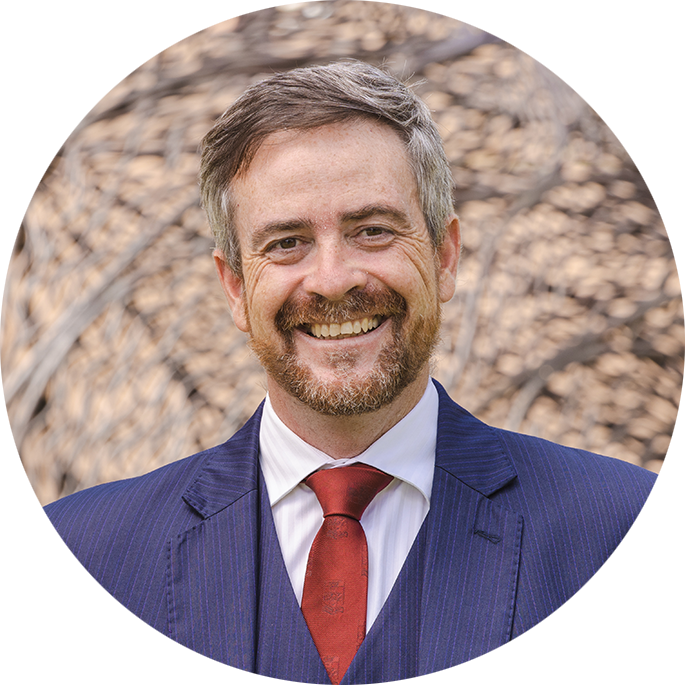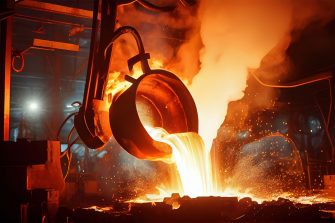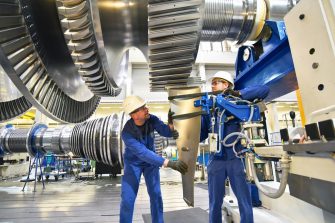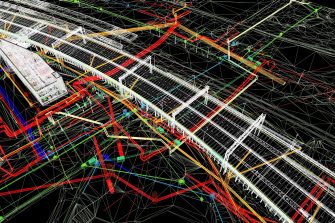About us
Our aim is that our research teams, industry partners, alumni and future graduates, will play a pivotal global role in decarbonising industrial materials and processes, enabling the transition to a low carbon economy.
-
Transition pathways for hard-to-decarbonise sectors including infrastructure, built environment, transport, industrial chemicals, and resources
-
Clean technology for critical industrial materials such as ammonia, plastics, metals, and cement
-
Integrated design solutions for buildings, cities and infrastructure, deploying low carbon materials and addressing energy efficiency, climate resilience and community health objectives
-
Policy, codes and standards to enable accelerated adoption of new technologies
-
Insights, modelling and analytics, including macro economic perspectives, systems simulation, Scope 3 carbon accounting, novel applications of AI
-
Green industry development strategy, engaging with government, industry and research stakeholders (national and international) regarding clean tech investment strategy and trade alliances
-
Community of practice, Forming transdisciplinary teams across UNSW faculties and disciplines
-
Workforce development via input to UNSW undergraduate, HDR and WILcurriculum design
About
The Institute for Industrial Decarbonisation brings together transdisciplinary expertise across UNSW faculties to support companies and industry sectors in achieving NetZero targets. Initiatives span technological, economic and policy innovation, aligned with green industry development opportunities. Advanced clean technologies are being developed in UNSW laboratories. In tandem, teams are working with research, industry and government partners to address the regulatory, finance, infrastructure, integrated design and trade solutions needed to accelerate adoption at scale.

Universities are ready and able to work with policy makers and business leaders to wrest back control of the climate trajectory.
Industry Advisory Committee
The Industry Advisory Committee provides leadership and insights regarding the priorities and needs of companies across all sectors of the economy, and the status of current decarbonisation innovation processes within industry. Peak bodies represented on the Committee collectively represent hundreds of major companies and are driving significant industrial decarbonisation initiatives.
Research Leaders
The Institute draws on the expertise of senior researchers across UNSW faculties. Decarbonisation is a transdisciplinary challenge and progress depends on thinking differently about how different professional disciplines work together. Our leadership group brings vision and commitment to the technology convergence process and the industry projects and programs that the Institute is driving.
Latest news
Industry partnerships
If you have a specific technical challenge you would like to explore, or are interested in discussing your company's decarbonisation strategy and transition, please get in touch.
The benefits of working with UNSW include:
- Multidisciplinary expertise at a leading global research institution.
- Access to world-class technologies and infrastructure.
- Dedicated industry-facing and government-facing organisational units.
- Highly effective partnership models including research strategy advice and support.
- Collaborative research leveraging third party and government funding.
- Access to our national and global research partners.
- Access to students through professional development programs, projects, and our industry placement program.
- Opportunities to lead or participate in high impact demonstration projects.

-
- Australian Trailblazer for Recycling and Clean Energy (ATRaCE), opens in a new window
- Hydrogen Energy Research Centre, opens in a new window
- ARC Research Hub for Integrated Energy Storage Solutions, opens in a new window
- Research Centre for Integrated Transport Innovation (rCITI), opens in a new window
- UNSW Centre for Transformational Environmental Technologies (CTET), opens in a new window
- Centre for Advanced Solid and Liquid based Electronics and Optics (CASLEO), opens in a new window
- Cluster for Advanced Macromolecular Design (CAMD), opens in a new window
- Australian Centre for Sustainable Mining Practices, opens in a new window
- Australian PV Institute (APVI), opens in a new window
- UNSW Digital Grid Futures Institute (DGFI), opens in a new window
- Water Research Centre (WRC), opens in a new window
- ARC Fire Training Centre, opens in a new window
- UNSW Connected Waters Initiative, opens in a new window
- UNSW Digital Grid Futures Institute, opens in a new window
- Solar Industrial Research Facility, opens in a new window
- Particles and Catalysis Research Laboratory (PartCat), UNSW, opens in a new window
- Flow Battery Research Laboratory, UNSW, opens in a new window
- Centre for Sustainable Materials Research and Technology (SMaRT@UNSW), opens in a new window
- ARC Training Centre for the Global Hydrogen Economy (GlobH2E), opens in a new window
- Centre for Infrastructure Engineering and Safety, opens in a new window
- Global Water Institute | (unsw.edu.au), opens in a new window
- Algae and Organic Matter (AOM Lab), opens in a new window
- ARC Training Centre for Automated Manufacture of Advanced Composites (AMAC), opens in a new window
- Future Food Systems CRC, opens in a new window
- Australian Centre for Advanced Photovoltaics (ACAP), opens in a new window
- The German-Australian Alliance for Electrochemical Technologies for Storage of Renewable Energy, opens in a new window
- Water Research Laboratory, opens in a new window
- The Materials & Manufacturing Futures Institute, opens in a new window
- UNESCO Centre for Membrane Science and Technology (CMST), opens in a new window
- Tyree Energy Technologies Building (TETB), opens in a new window
- Real-Time Digital Simulation (RTDS) Laboratory, UNSW, opens in a new window
- ARC Training Centre for The Global Hydrogen Economy, opens in a new window
- The Mark Wainwright Analytical Centre (MWAC), opens in a new window
- The Collaboration on Energy and Environmental Markets, opens in a new window
Future leaders and the skills pipeline
A sustainable future for all is a priority at UNSW. Through our undergraduate degrees and postgraduate programs, to executive level short courses and briefings offered by the Australian Graduate School of Management (AGSM), opens in a new window and Australian Graduate School of Engineering (AGSE), opens in a new window, we are helping to provide the skills needed to achieve decarbonisation at an industrial scale.
Learn more:


Networks
The IID works with and builds on existing national and international networks in the climate and sustainable development field. UNSW Chairs the International Universities Climate Alliance, opens in a new window, leads the NSW government’s Decarbonisation Hub, opens in a new window and is engaged with the UN, opens in a new window in relation to sustainability and resilience initiatives throughout the Indo-Pacific. Regarding regional engagement, the IID works in tandem with the Office of the Vice Chancellor and other key UNSW groups including The Institute for Global Development, opens in a new window, The Climate Risk & Response Institute, opens in a new window, The Cities Institute, opens in a new window, The Energy Institute, opens in a new window, The Global Water Institute, opens in a new window and the Australian Defence Force Academy, opens in a new window.
















